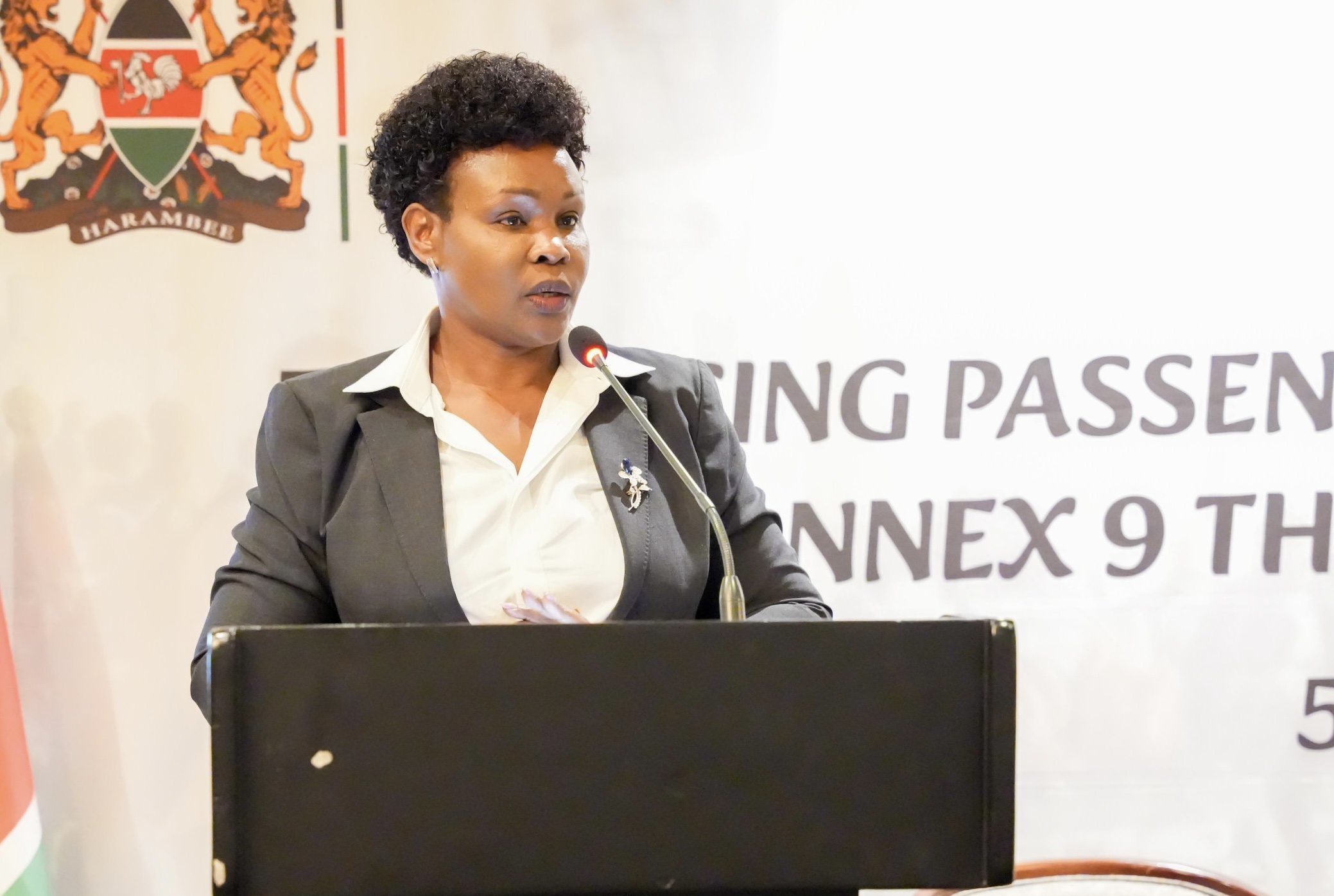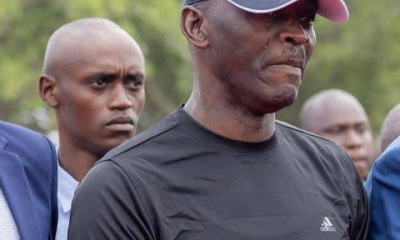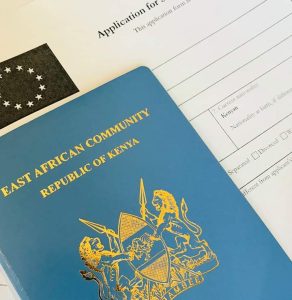Investigations
EXPOSED: The Visa Cartel Bleeding Kenyans Dry – How Immigration Boss Turned Government Office Into Personal Cash Cow
The technical evidence outlined in the complaint reveals sophisticated digital fraud that violates the Computer Misuse and Cybercrimes Act of 2018.

Exclusive Investigation Reveals Shocking Web of Corruption, Forgery and Ethnic Discrimination at Nyayo House
By Kenya Insights Investigative Desk
NAIROBI, Kenya – A damning whistleblower complaint has blown the lid off what appears to be one of the most brazen corruption schemes ever to grip Kenya’s immigration services, exposing how senior officials allegedly transformed a critical government department into a private money-minting operation that has fleeced thousands of desperate visa applicants.
At the heart of this explosive scandal sits Abdulrahman Pashua Juma, a Mombasa-based operator who, according to detailed allegations from Somali community leaders and licensed travel agencies, has built an iron-fisted monopoly over visa referrals with the full protection of Immigration Director General Evelyne Cheluget herself.
THE $234,000 WEEKLY HEIST
The numbers are staggering and paint a picture of industrial-scale theft masquerading as public service.
Court documents and community complaints reveal that Juma’s network, operating brazenly from a Nyali office in Mombasa, processes over 1,200 visa applications weekly. Each desperate applicant pays between $185 and $195 for what should cost just $34 in official government fees.
Do the math. That’s roughly $234,000 being siphoned off every single week. In a month, this cartel allegedly pockets close to a million dollars while legitimate immigration officers watch helplessly from the sidelines, their system access revoked and their authority stripped.
The operation runs like a well-oiled machine. Juma’s trusted lieutenants, Abdiaziz Ibrahim, Mohamed Salah Igge, Abdirahman Ali, and Mubashir Omar, fan out across Nairobi and coastal regions collecting passports, photographs, and cash from applicants who have no idea they’re being robbed blind.
“MY FARM” – HOW A DIRECTOR GENERAL PRIVATIZED A GOVERNMENT DEPARTMENT
Perhaps the most damning revelation in this saga concerns Director General Evelyne Cheluget, who allegedly refers to the Visa Section as “my farm”, a chilling metaphor that perfectly captures how public resources have been harvested for private gain.
According to the complaint filed with multiple government agencies including the DCI, EACC, and even the U.S. Embassy, Cheluget has systematically purged the visa section of any officer unwilling to play ball with the cartel.
David Kinyua, Kevo, and Oyancha, three experienced officers who previously held legitimate referral-approval authority, found themselves locked out of the PISCES visa system after they declined to cooperate with the monopoly. Their crime? Refusing to participate in the systematic looting of ordinary Kenyans and foreign nationals seeking legitimate travel documents.
Other veteran officers, Wafula, Njenga, Wanguthi, Meshack, and Joan, have been similarly sidelined, told to “take tea” while only two compliant officers, Martin Njuguna and Lucy, are allowed to process the flood of applications funneled through Juma’s network.
This isn’t just corruption. This is the complete capture of a government institution.
THE PROTECTION RACKET AT NYAYO HOUSE
The complaint names three senior officers whose roles in enabling or protecting this network demand immediate scrutiny.
John Ndegwa, the Visa In-Charge responsible for overseeing all visa operations, sits at a critical chokepoint. His position gives him oversight of internal coordination and the power to facilitate or obstruct the cartel’s operations.
Richard Chesang, serving as Acting Deputy In-Charge, controls staff deployment and system privileges. In a properly functioning department, he would be the firewall against exactly this kind of abuse. Instead, the complaint suggests his inaction has enabled the corruption to flourish.
Most troubling is the alleged involvement of Shem Ateka, an officer attached to the National Intelligence Service who is accused of actively coordinating and protecting the cartel’s activities from within the bowels of Nyayo House itself.
If these allegations prove true, they represent not just corruption but a complete inversion of national security priorities, with an intelligence officer allegedly protecting criminals instead of protecting Kenya.
FORGERY, DIGITAL MANIPULATION AND CYBER CRIME
The technical evidence outlined in the complaint reveals sophisticated digital fraud that violates the Computer Misuse and Cybercrimes Act of 2018.
Investigators are being presented with proof that dozens of visa applications originate from identical IP addresses and email accounts, conclusive evidence of centralized processing that strips applicants of any real control over their own applications.
Passports and photographs are collected via WhatsApp and Telegram, then uploaded to government systems without the applicants’ knowledge or meaningful consent. Multiple records share identical timestamps and metadata, the digital fingerprints of cloned or forged submissions.
This isn’t just about overcharging. This is about the wholesale fabrication of government records, creating a parallel reality in Kenya’s immigration database that serves the cartel’s interests while exposing the country to massive security and diplomatic risks.
What happens when foreign governments discover that Kenya’s visa records cannot be trusted? What happens when criminals exploit these same channels that the cartel has so conveniently opened?
ETHNIC DISCRIMINATION AND INTIMIDATION
Beyond the financial crimes, the complaint details a pattern of ethnic discrimination that should shock any Kenyan committed to the constitutional principles of equality and human dignity.
Somali applicants who dare to ask questions about the inflated fees are allegedly insulted as “low-class people” and threatened with rejection or even arrest. Independent travel agents attempting to submit applications through legitimate channels find themselves blocked from the system and accused of “undermining authority.”
This is Article 27 of the Constitution being trampled daily at Nyayo House. This is Kenya’s international reputation being dragged through the mud by officials who treat their offices as personal fiefdoms and entire communities as cash cows to be milked.
The psychological toll on applicants, many of whom are refugees or diaspora Kenyans trying to bring family members home, cannot be overstated. They face a impossible choice: pay the extortionate fees to Juma’s network or abandon their applications entirely.
THE EVIDENCE MOUNTAIN
The whistleblowers claim to possess a devastating arsenal of evidence that could blow this case wide open.
They’re offering investigators WhatsApp and Telegram chat logs showing real-time coordination of visa transactions. They have M-Pesa, bank, and cash payment receipts documenting the money trail. They’ve compiled lists of duplicate references and IP logs that prove centralized processing. They have witness statements from both affected immigration officers and traumatized applicants.
Most damning of all, they claim to possess photographic and video evidence of the visa section’s operations that would make denial impossible.
The complaint, sent to the Principal Secretary of the Ministry of Interior, the DCI, EACC, NIS, the Attorney General’s office, parliamentary oversight committees, and even the U.S. Embassy and UN Anti-Corruption Office, represents a nuclear option by a community that has clearly exhausted all other remedies.
WHAT MUST HAPPEN NOW
The Somali community advocacy groups and travel agencies behind this complaint are demanding immediate and concrete action.
They want a joint investigation by DCI, EACC, and NIS into every officer named in the complaint. They’re calling for a comprehensive audit of all visa applications processed between June and October 2025, tracing IP addresses, login records, and payment flows.
Most controversially, they’re demanding the immediate suspension pending investigation of Director General Evelyne Cheluget, John Ndegwa, Richard Chesang, and Shem Ateka.
They want system access restored to the officers who were unlawfully sidelined for refusing to participate in the scheme, including David Kinyua, Kevo, and Oyancha.
And they’re demanding a protected reporting channel for whistleblowers and affected applicants, recognizing that fear of retaliation has silenced too many voices for too long.
THE BIGGER PICTURE
This scandal, if the allegations are proven, represents far more than just another corruption case in Kenya’s long and painful fight against graft.
It represents the complete privatization of a sovereign government function. It represents the transformation of public servants into private profiteers. It represents the weaponization of bureaucracy against the most vulnerable.
Every week that this network allegedly operates, Kenya loses not just money but credibility. Our immigration system becomes a joke. Our claims to be a serious regional hub for business and travel become hollow. Our constitutional commitments to equality and non-discrimination become worthless paper.
The international implications are severe. Foreign governments and international organizations watching this scandal unfold will ask hard questions about Kenya’s ability to secure its borders and maintain reliable records. Investors will wonder what other government functions have been captured by criminal networks.
THE SILENCE THAT SPEAKS VOLUMES
As of publication, neither Director General Evelyne Cheluget nor any of the named officers have responded to requests for comment. The Ministry of Interior has not issued any statement. The EACC and DCI have not confirmed whether investigations have been opened.
That silence is telling. In the face of such specific, detailed, and damning allegations backed by promises of documentary evidence, the instinct of any innocent official would be to demand an immediate investigation to clear their name.
Instead, we have silence. And in Kenya’s corruption fights, silence has historically been the sound of guilt.
A COMMUNITY FIGHTS BACK
What makes this case particularly significant is the courage of the complainants. The Somali community in Kenya has faced decades of discrimination, harassment, and marginalization. Speaking out against powerful government officials carries real risks of retaliation.
Yet they’ve chosen to fight. They’ve compiled evidence. They’ve engaged lawyers. They’ve sent their complaint not just to Kenyan authorities but to international watchdogs and foreign embassies.
Their message is clear and defiant: “No more monopoly. No more corruption. No more discrimination. No fear to anyone like it or not.”
That’s the sound of Kenyans who have had enough. That’s the sound of a community that refuses to be victimized any longer.
CONCLUSION: A TEST FOR KENYA’S INSTITUTIONS
This scandal represents a critical test for Kenya’s anti-corruption institutions and for President William Ruto’s repeated promises to fight graft without fear or favor.
If these allegations are true, they represent exactly the kind of systemic, brazen corruption that destroys public trust and undermines development. If they’re false, then the named officers deserve swift exoneration and the complainants should face consequences for defamation.
But the worst possible outcome would be the one Kenyans have seen too many times before: the complaint disappears into bureaucratic limbo, investigations stall, evidence vanishes, whistleblowers face retaliation, and the cartel continues operating with impunity.
Kenya Insights will continue following this story aggressively. We will track whether investigations are opened. We will monitor whether any officials are suspended or charged. We will document any attempts to intimidate or silence the whistleblowers.
The visa cartel at Nyayo House has allegedly operated in plain sight for months, protected by powerful patrons and enabled by institutional capture. That protection ends now. The light of public scrutiny has been switched on, and there’s no switching it off.
The only question now is whether Kenya’s institutions have the courage and integrity to follow that light wherever it leads, no matter how powerful the people caught in its glare.
Kenya Insights will be watching. The public will be watching. The world will be watching.
This is a developing story. Kenya Insights welcomes additional information from whistleblowers, affected applicants, and immigration officers. Confidential tips can be submitted through our secure channels.
Kenya Insights allows guest blogging, if you want to be published on Kenya’s most authoritative and accurate blog, have an expose, news TIPS, story angles, human interest stories, drop us an email on [email protected] or via Telegram
-

 News2 weeks ago
News2 weeks agoPlane Carrying Raila Odinga Becomes World’s Most Tracked Flight as Kenya Airways Honors Him With Special Call Sign ‘RAO001’
-

 Business6 days ago
Business6 days agoSafaricom’s Sh115 Trillion Data Breach Scandal: How Kenya’s Telecom Giant Sold Out 11.5 Million Customers
-

 Business1 week ago
Business1 week agoBillionaire: Inside Raila Odinga’s Vast Wealth
-

 Investigations3 days ago
Investigations3 days agoDEATH TRAPS IN THE SKY: Inside the Sordid World of West Rift Aviation’s Deadly Corruption Cartel
-

 News2 weeks ago
News2 weeks agoI Used To Sleep Hungry, But Today I Employ The Same People Who Once Laughed At My Poverty
-

 News1 week ago
News1 week agoMaurice Ogeta, Raila’s Bodyguard: The Shadow Who Became The Story
-

 News2 weeks ago
News2 weeks agoInside 17 Minutes: CCTV Footage Reveals Murdered State House Guard Was Well Known to The Killer
-

 News2 weeks ago
News2 weeks agoCourt Fines Orengo’s Law Firm For Wrongful Dismissal of Lawyer














